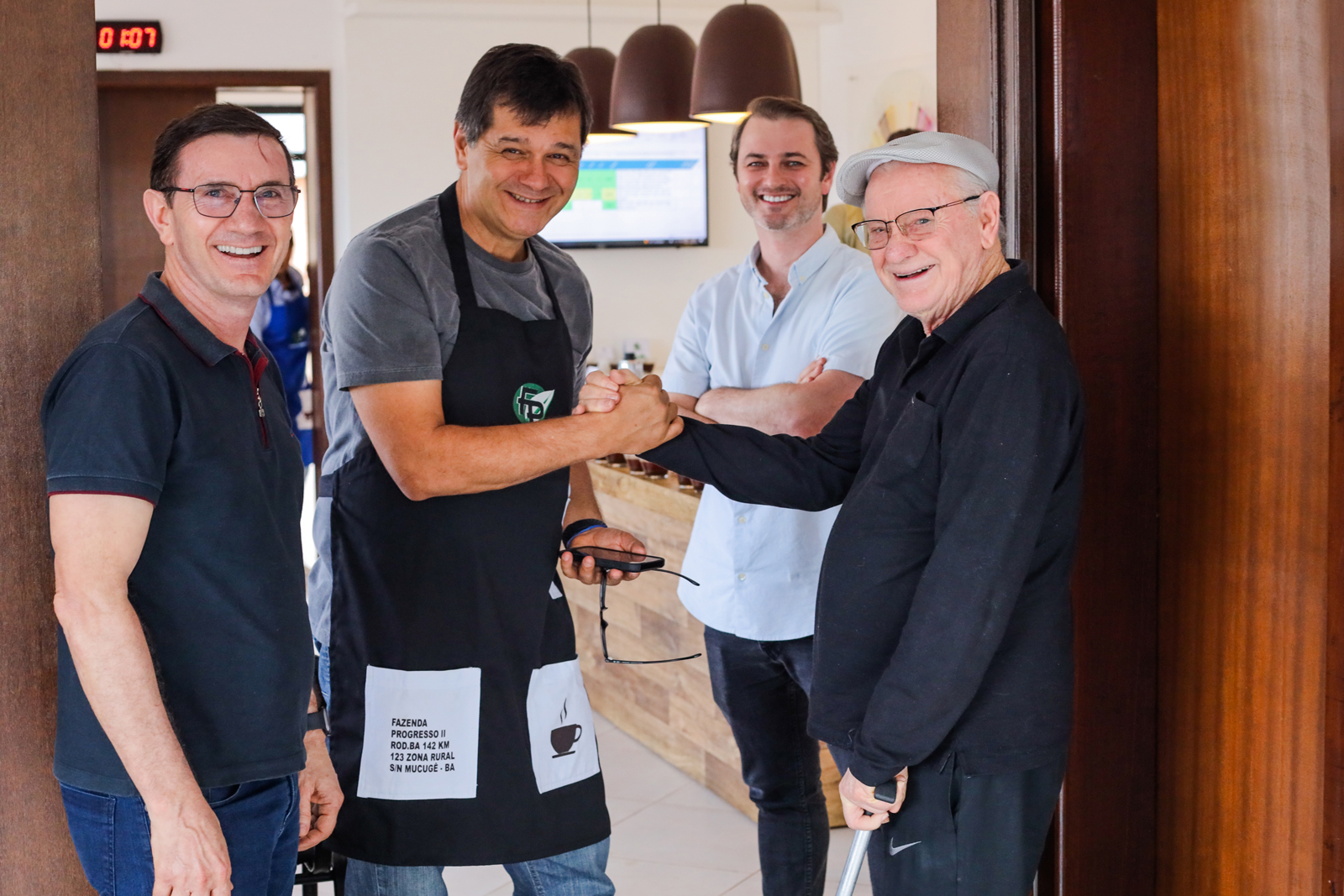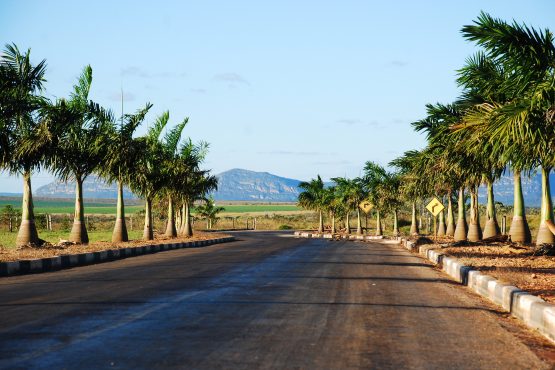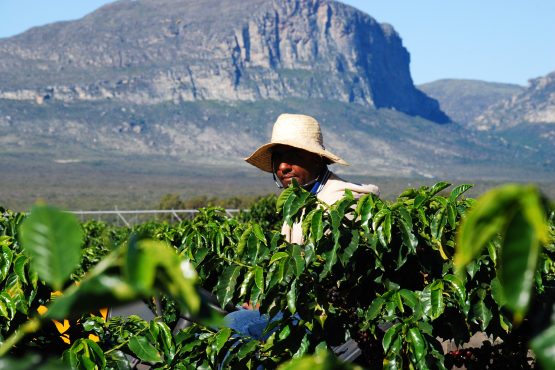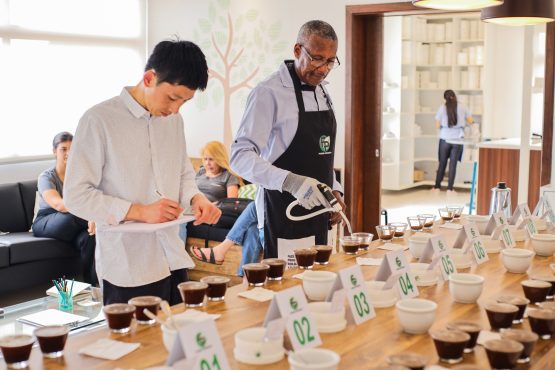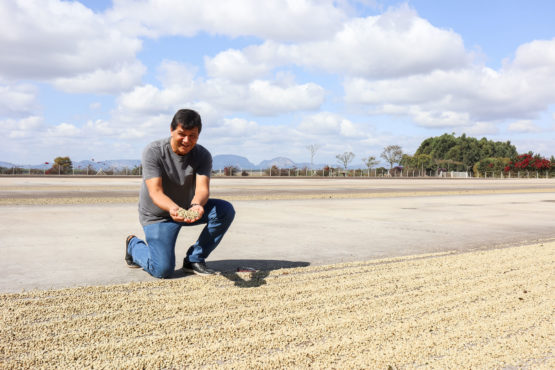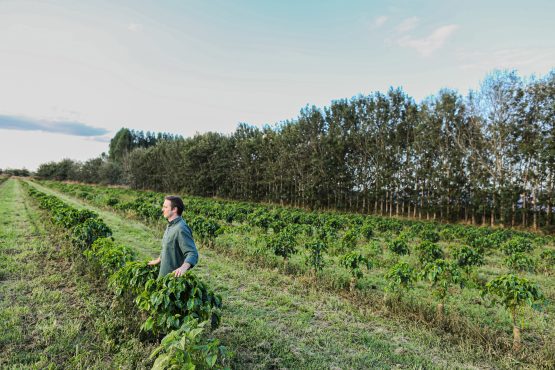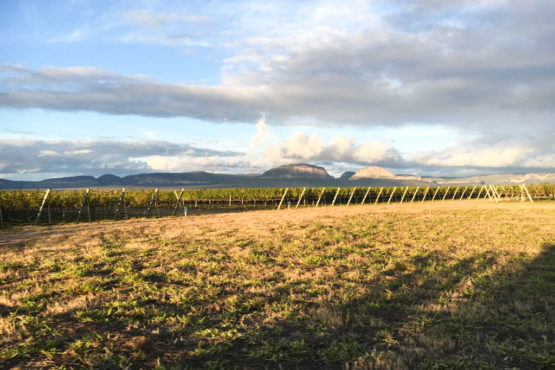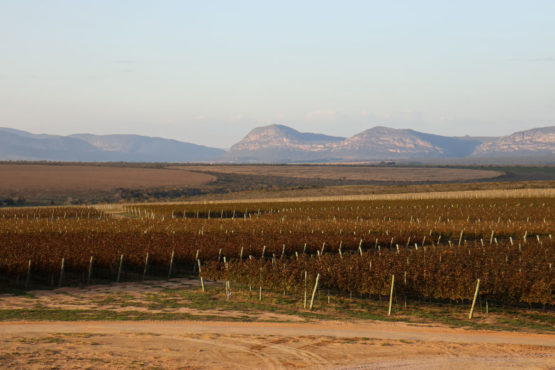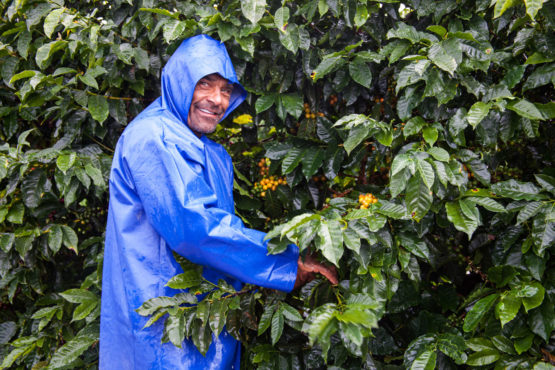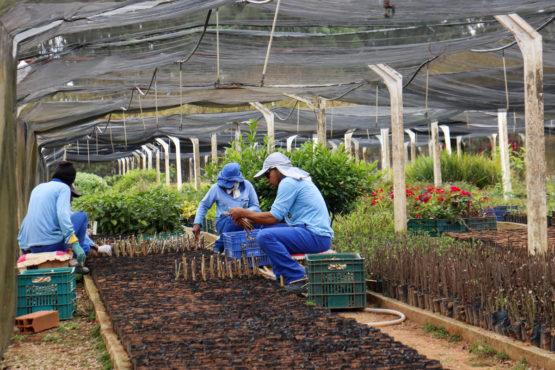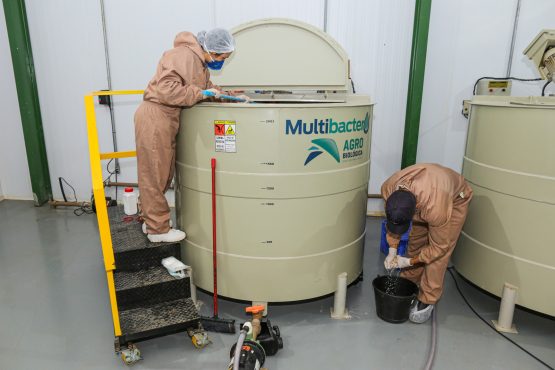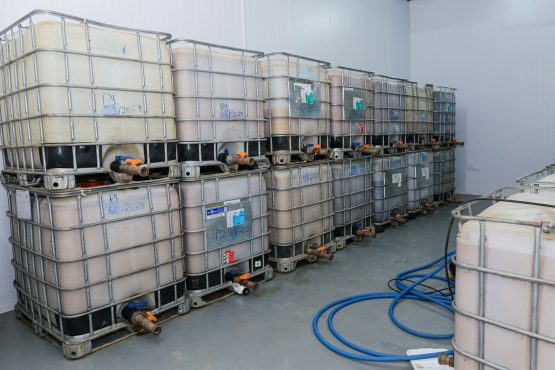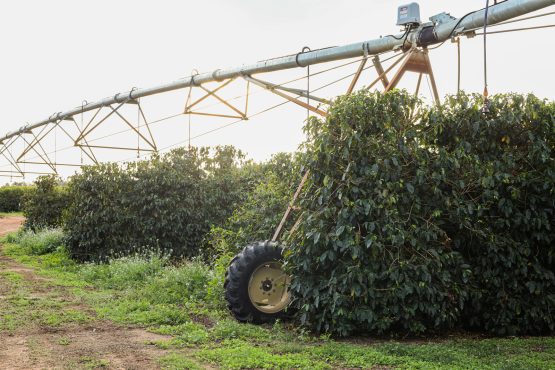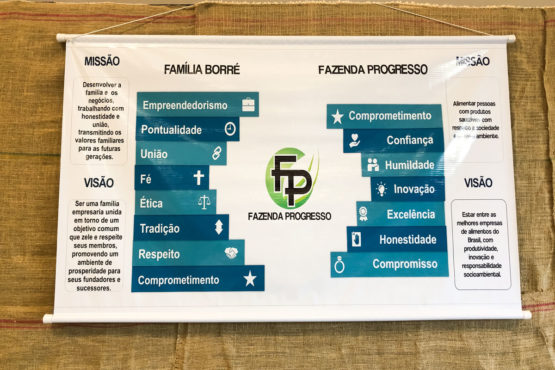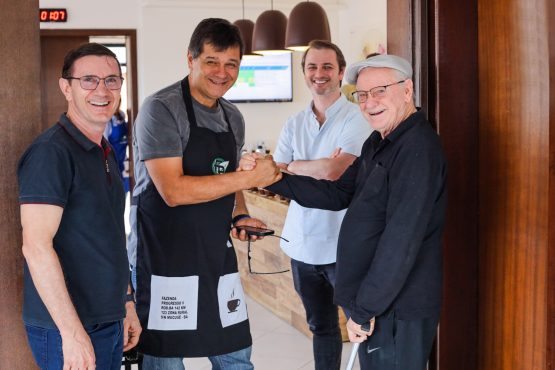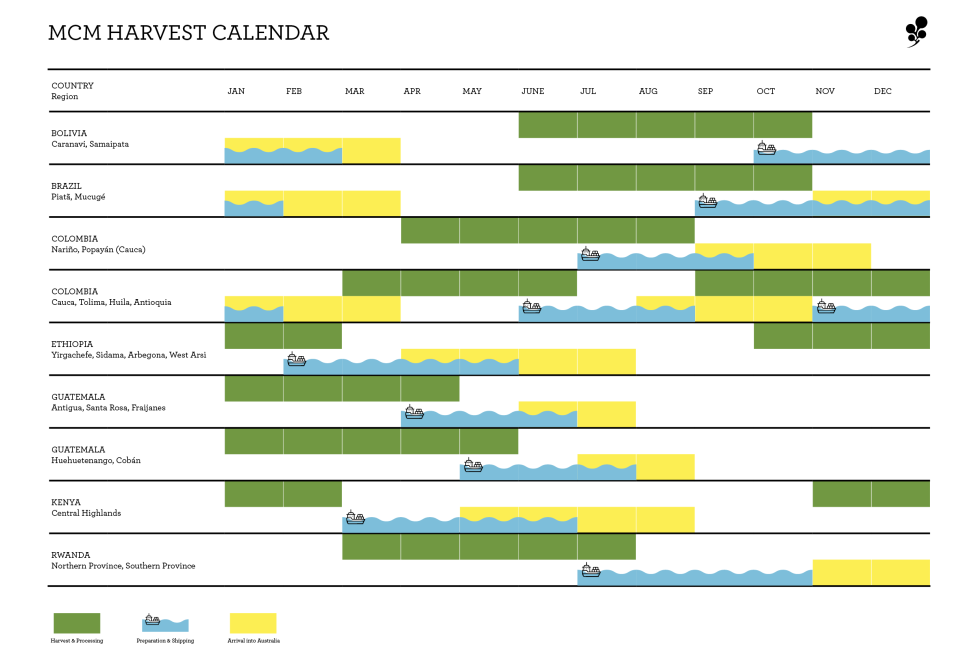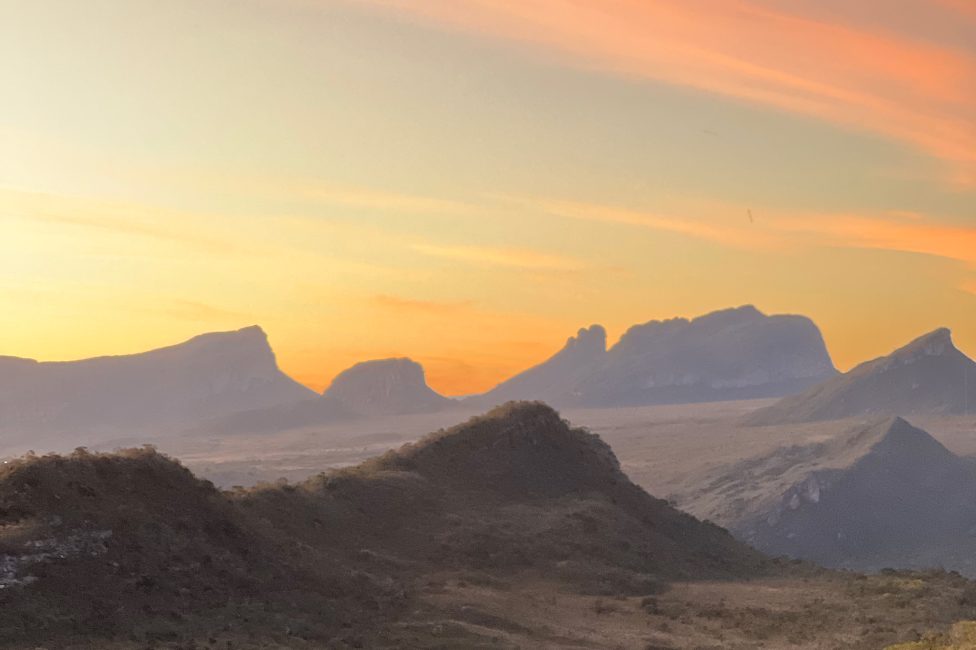The Borré Family
We have been featuring coffees produced by the Borré family since we first visited their estate in 2015. Each year since, we have been consistently impressed with their meticulous and progressive approach to coffee production, which results in incredible cleanliness and longevity in the cup profile.
The Borrés are the influential family behind Fazenda Progresso, a beautiful farm nestled in the Chapada Diamantina mountain range in the heart of Bahia. The farm sits on a plateau at 1,150m above sea level and is surrounded by the Chapada Diamantina National Park, known for its mountainous cliff formations (Chapada) and 19th-century diamond mining (Diamantina).
The history of the farm dates back to 1984 when the Borré family migrated from Southern Brazil to the northeast and purchased some land in the municipality of Ibicoara, near the town of Mucugê. In the early years, the family tried growing crops such as soybeans, wheat and English potatoes. The potatoes turned out to be an incredibly successful crop, stimulating investments and making the family one of the largest producers of potatoes in Bahia.
In 2005, the Borré family sought to diversify the activities on their land and quickly recognised that the high elevations, plentiful rainfall, and rich soil found on their property were ideal to produce specialty coffee. The family’s youngest son, Fabiano Borré, spearheaded the coffee program, investing in state-of-the-art infrastructure and agricultural practices to ensure they could produce the very highest quality coffee possible. Fabiano has surrounded himself with an exceptional team and sought advice from some of the most respected professionals in the field, including Silvio Leite, founder of the Cup of Excellence and president of the Brazil Specialty Association, who has over 30 years of experience in coffee grading, tasting and quality control.
Today, some 530 hectares of the property are dedicated to coffee. This land is divided into five different plots: Progresso 1, Progresso 2, Floresta, Três Irmãos and São José, where only two varieties are grown: Catuaí 144 (Red Catuaí) and Topazio (a hybrid of Mundo Novo and Red Catuaí bred in Brazil in the 1960s). Lots are typically processed separately, depending on yields, using Fazenda Progresso’s meticulously designed infrastructure. Over the last decade, Fabiano has continued to experiment and invest in equipment and processes that will improve the quality of his coffee. He has implemented a robust quality control program, including a dedicated quality control lab with a talented cupping team headed up by Ednaldo Nascimento, who has worked with Progresso since 2010. This focus on quality was rewarded the first time Progresso entered coffee into the Cup of Excellence competition in 2015 and placed 15th – a fantastic achievement and testament to the hard work, resources, and focus that has been put into producing exceptional coffee. They also went on to place 20th in the 2017 Cup of Excellence.
The Borré’s motto is ‘Mindful Coffee’. This describes their commitment to acting mindfully and ensuring that their family values and vision (centring around excellence, innovation, and environmental and social responsibility) inform every decision they make and define how they do business. Fazenda Progresso’s people and their welfare are enormously important to the Borré family, and they take great care to create an excellent work environment for their staff. Buses are provided to and from work, and clean and welcoming lunch facilities and bathrooms have also been built on site. The staff also receive insurance, protective wear, sunscreen and biannual health check-ups by a resident doctor.
The family offers financial support to a local school in Roncador, the small village next to the farm, where they’ve also built a medical centre (in collaboration with Danish coffee machine makers Scanomat), and a veggie garden that is used by the school. The Borrés have also invested heavily in local tourism in and around Mucugê, with the goal of invigorating the region and providing more economic and employment opportunities to the local community. Their business ventures include planting vineyards, opening a state-of-the-art winery and operating a boutique hotel to attract domestic and foreign tourists.
More recently, the family has campaigned tirelessly to earn the broader region of Chapada Diamantina Geographical Indication for specialty coffee by Denomination of Origin — which they achieved in 2024. Geographical Indication recognises the human and environmental factors that result in the exceptional cup profile produced within a specific region, and this accomplishment is extremely meaningful to the local producing communities. Since 2021, Progresso have also sponsored a coffee competition that rewards smallholder producers in the towns surrounding the Chapada mountain range. By supporting the local coffee community, the Borrés hope to elevate the name of Chapada Diamantina and to encourage farmers to pursue quality-focused production, with the long-term goal of the region’s coffees fetching higher, more sustained and profitable prices.
Caring for the environment is a core value for the Borré family, who take great care to protect and preserve the ecological health of their area. Water for processing is sourced from the nearby Paraguaçu river and a nearby dam and is carefully dispensed across the estate. Meteorological stations are positioned throughout the farm to monitor the nutritional needs of each plot, ensuring only the exact requirements for water and other inputs are dispensed to the coffee trees. The inputs are distributed through a combination of drip and pivot irrigation systems — thereby optimising irrigation and minimising waste. Fabiano is planning on converting the entire system to pivot irrigation, as this style helps promote the growth of grass coverage around the coffee trees, which also help in retaining moisture.
Coffee pulp from processing is composted (along with potato wastage, which is very high in potassium and great for coffee trees) and used to fertilise trees throughout the plantation. In recent years, the Borrés have begun harvesting beneficial bacteria and microorganisms from the farm and cultivating them in bioreactors, to be used as naturally derived fertilisers and pesticides in place of chemical inputs. As further proof of their commitment to environmental sustainability, 75% of the property is preserved as native land, well above the national minimum of 20%.
The Borré family business has always been managed and directed by family members and is now in its third generation of operation. You can read an interview with Fabiano Borré here.
